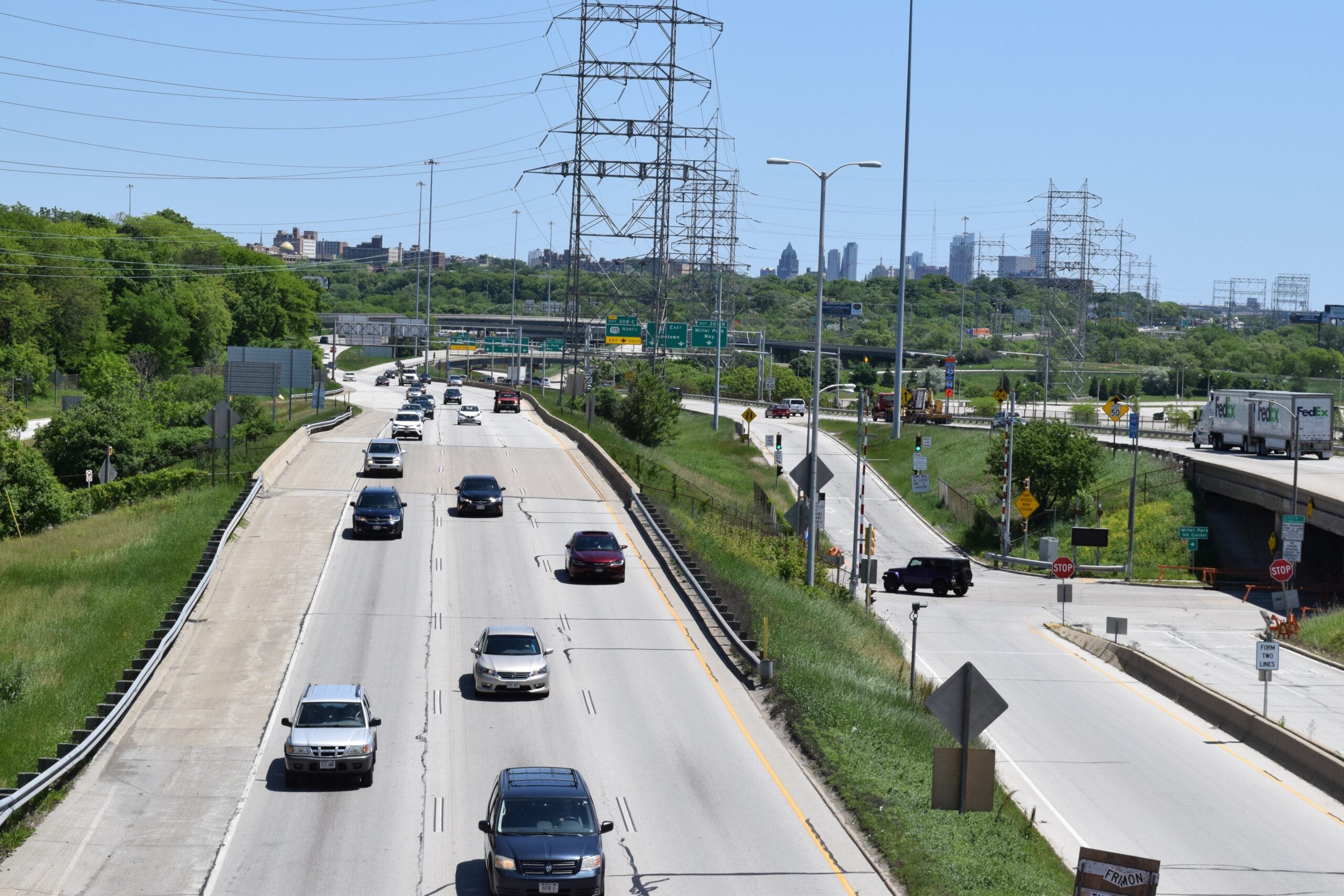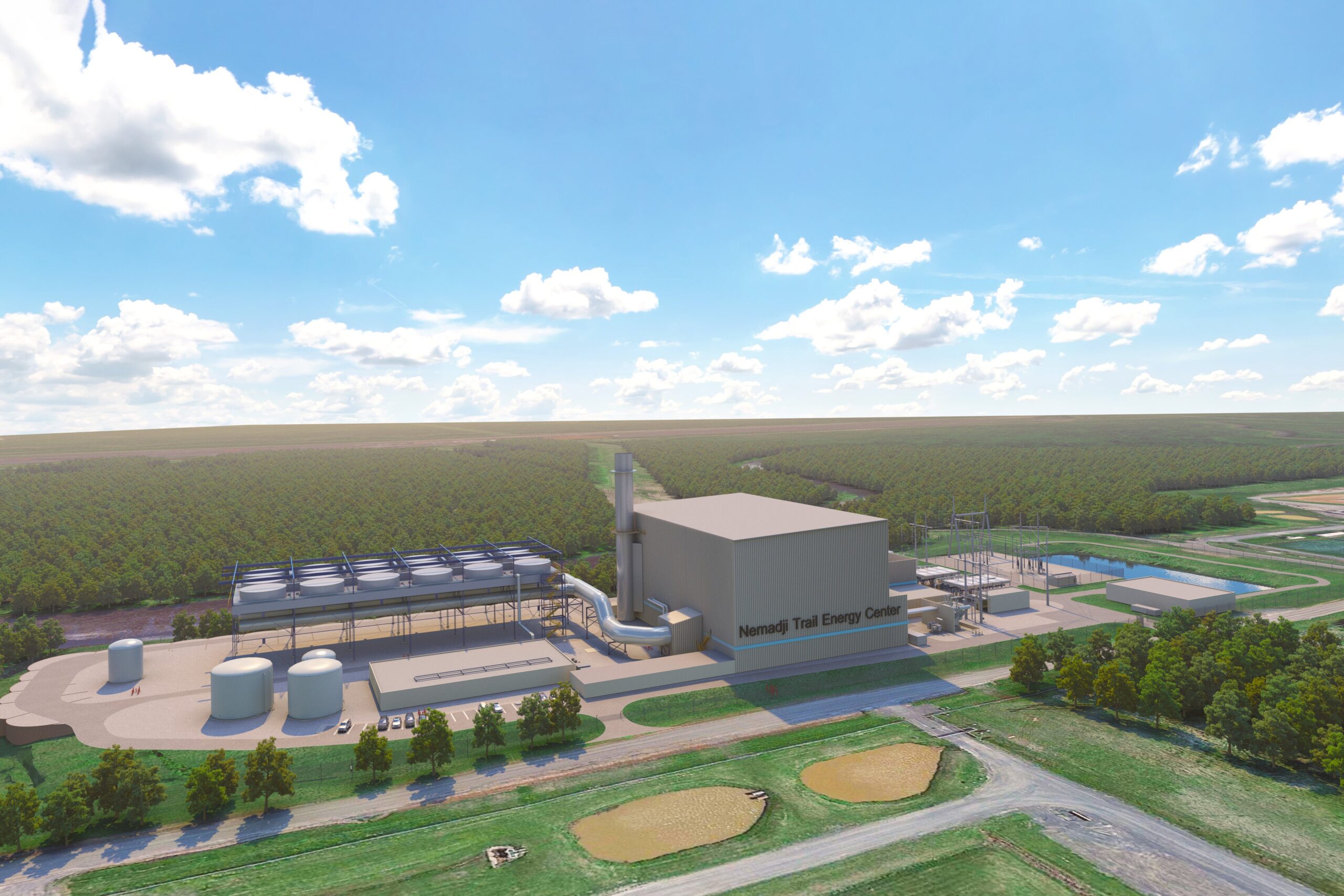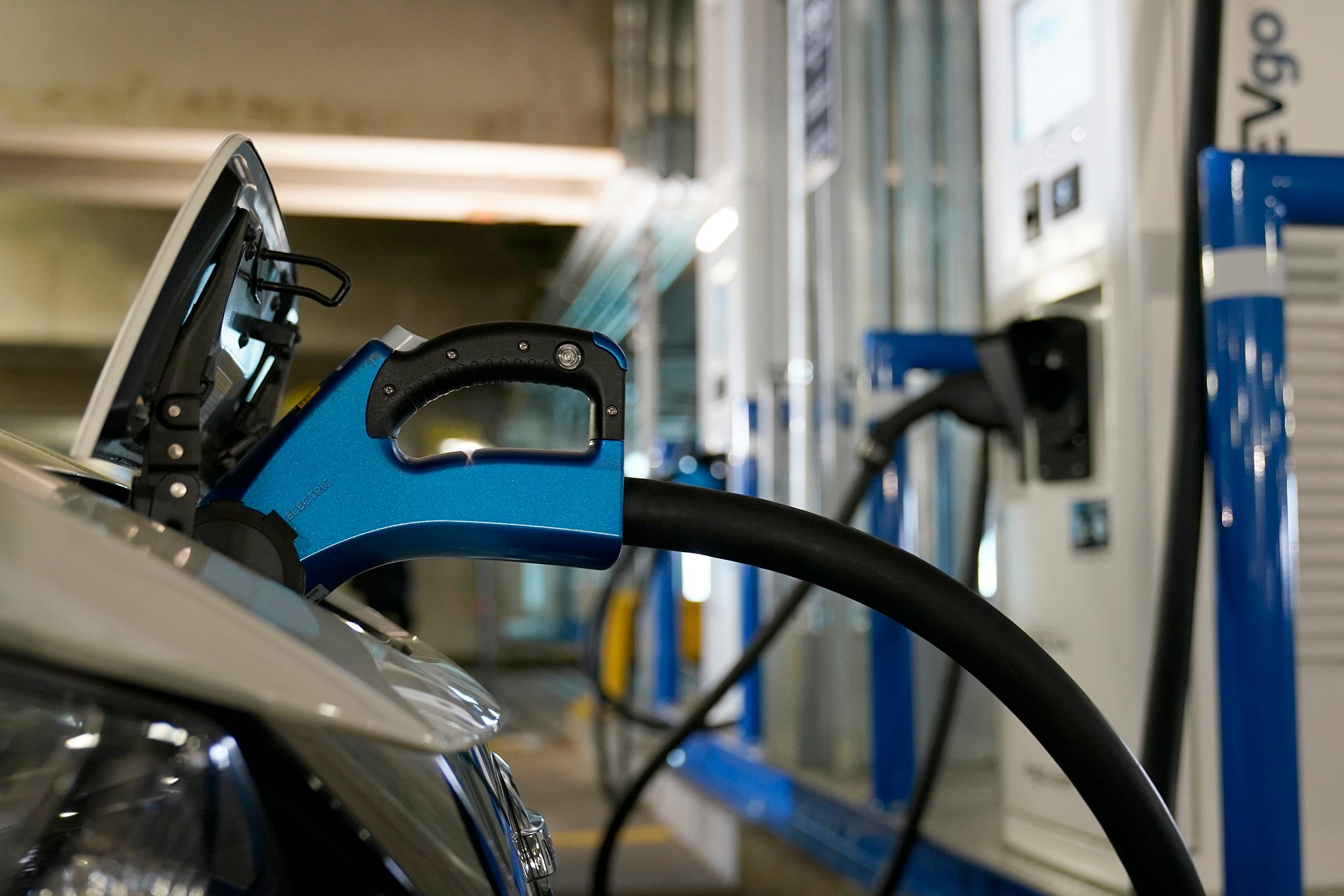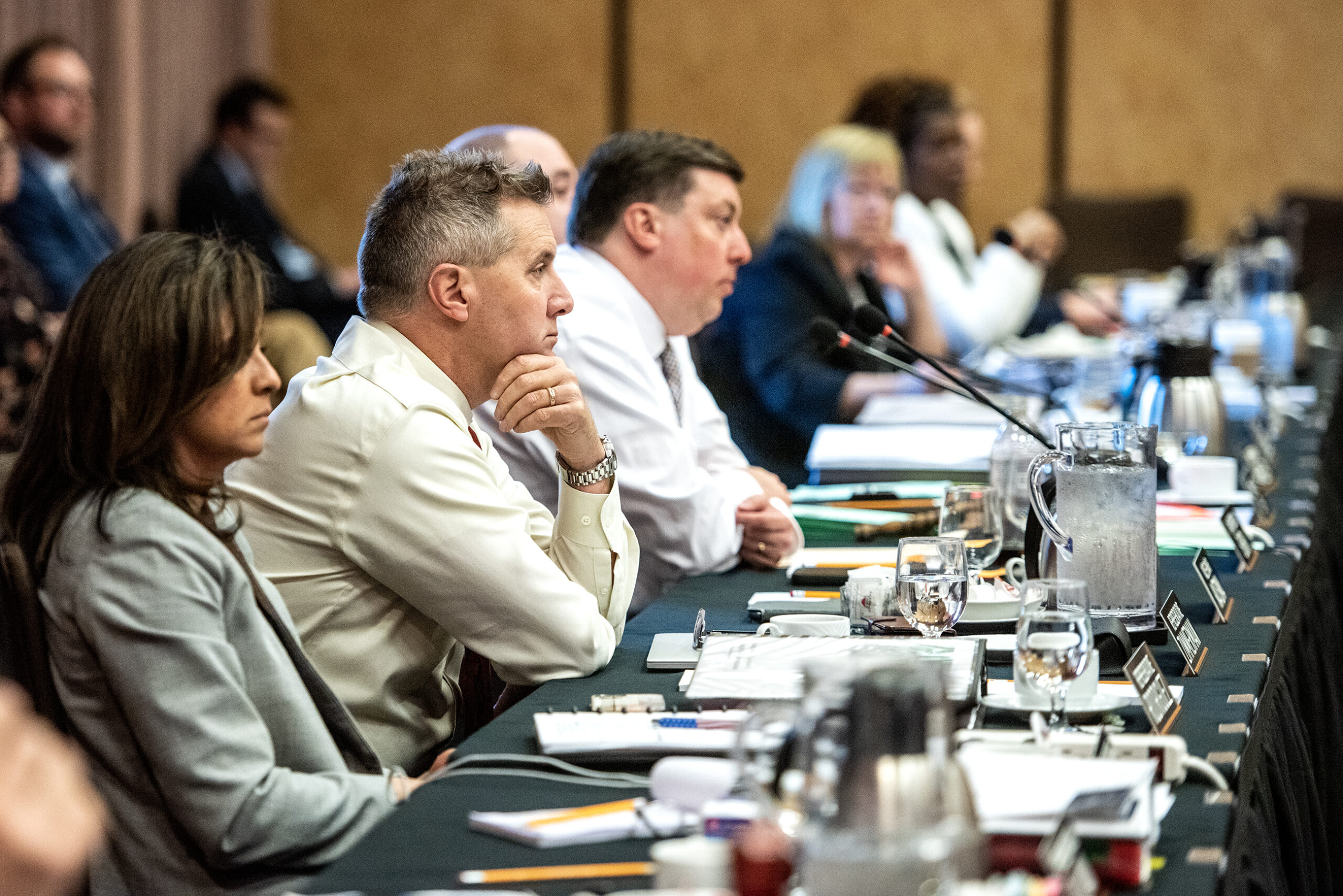The $1 trillion bipartisan infrastructure bill introduced by the U.S. Senate this week could mean sweeping investments for roads, bridges, internet and water infrastructure in Wisconsin. But, Republican senators are calling for changes on how to pay for the bill as House Democrats threaten to tie its fate to another proposal investing in “human infrastructure,” such as funding for tax breaks and child care.
The roughly 2,700-page bill includes $550 billion in added federal spending over the next five years for highways, rail, power and water infrastructure. In June, President Joe Biden touted the infrastructure framework in Wisconsin and its historic investments in public transit, electric vehicle infrastructure and high-speed internet.
The bill invests $110 billion in roads, bridges and major projects. Wisconsin Transportation Secretary Craig Thompson told WPR on Tuesday that the proposal would give state and local government certainty over funding that’s available over the next five years.
News with a little more humanity
WPR’s “Wisconsin Today” newsletter keeps you connected to the state you love without feeling overwhelmed. No paywall. No agenda. No corporate filter.
“We do plan on accelerating our state highway rehabilitation program, which is just more resources to fix our current two-lane state highways, as well as trying to get more resources to the locals so that they can fix what we already have as well,” said Thompson.
Gov. Tony Evers and Republican lawmakers agreed on roughly $2 billion for the state’s program for rebuilding and resurfacing roads under the budget. Still, Thompson said the list of needs is long after years of deferred maintenance on bridges, roads and other projects.
There has been no increase in the state’s gas tax since the state repealed a law in 2006 that allowed the tax to rise automatically with inflation. Evers proposed increasing the gas tax under the last two-year state budget, but that was rejected by Republican lawmakers.
Around 7 percent of Wisconsin’s 14,271 bridges — 979 bridges — are structurally deficient, according to data from the Federal Highway Administration. In its 2021 report card, the American Society of Civil Engineers found more than one third of Wisconsin roads are in fair or poor condition. Thompson said they’re working with local partners to identify and prioritize areas that may benefit from federal spending.
The legislation would devote $39 billion for public transit and provide more options particularly for communities of color. Non-white residents are nearly six times as likely to use public transportation statewide. Republican lawmakers on the state’s budget writing committee cut transit funding in half for Milwaukee and Madison over the next two years, citing funding the cities received through COVID-19 relief. Thompson said that move was the “wrong way to go” and hoped federal money would bring more investment in mass transit.
The bill would also invest $66 billion in rail to eliminate Amtrak maintenance backlogs and create partnership grants for intercity rail service. That could benefit projects in Wisconsin, like an existing $53 million proposal to add a second daily round-trip passenger train from the Twin Cities to Chicago, as well as the Northern Lights Express passenger rail proposal from the Twin Cities to the Duluth and Superior area.
“I think there can be potentially some money in here that will allow us to look even beyond that to some other opportunities for passenger rail in Wisconsin,” said Thompson.
Wisconsin hasn’t seen significant new investment in transportation infrastructure since the creation of the Interstate Highway System 65 years ago, said John Kissinger, former chair of the American Council of Engineering Companies of Wisconsin. He said much of the water and wastewater infrastructure in Wisconsin communities was built more than a century ago.
“Primarily, it’s just old and really at the end of its useful life and should really be replaced with something that’s more efficient, and more modern, and works better,” Kissinger said.
The bill would provide $55 billion to upgrade water and wastewater systems. In Wisconsin alone, it’s estimated that meeting future water and wastewater needs will cost the state around $15 billion. In the meantime, utilities often raise rates to cover expenses to maintain or upgrade facilities. Smaller, more rural communities typically face a larger financial burden since there are fewer people to spread out those costs.
“The privilege of flushing your toilet is much, much more expensive in the smaller communities,” said Gil Hantzsch, CEO of MSA Professional Services, a Baraboo-based engineering firm that designs infrastructure projects.
The legislation would also include funding to address PFAS chemicals and replace lead pipes, which are more likely to impact low-income and marginalized communities. Last week, Wisconsin’s top natural resources officials said a lack of funding at the state level has hindered their ability to replace the state’s more than 200,000 lead lines, adding the federal infrastructure bill could provide significant resources to address them.
Around $65 billion would be set aside for expanding high-speed internet.
In Wisconsin, around 394,000 people lack access to broadband internet at a time when the COVID-19 pandemic has forced many people to work and learn remotely. Despite large state and federal investment, that number may be even higher due to the way the Federal Communications Commission measures and reports access.
Internet access is more limited in rural areas of the state like northern Wisconsin where there are fewer residents, making it more difficult for companies to justify investing in costly infrastructure. Superior Mayor Jim Paine said Tuesday the bill could help support a proposal to build a city-owned broadband network.
“Because the federal government has now stepped up twice through the American Recovery Plan Act and now through this bipartisan infrastructure bill, we’re going to be able to deliver it faster and cheaper than we had ever planned before,” said Paine.
Paine said the legislation would also accelerate work by the city and multiple federal, state and tribal partners to clean up the St. Louis River, which has been designated one of the most polluted sites on the Great Lakes. The bill would add $1 billion in funding to a federal Great Lakes cleanup and restoration program over the next five years, according to the National Wildlife Federation.
Wisconsin U.S. Sen. Tammy Baldwin, a Democrat, said Tuesday that the legislation represents a bold, bipartisan effort that will create many jobs.
“This is so needed. We have ignored and failed to maintain our surface transportation, our water transportation, whether it’s the Mississippi River, the Great Lakes,” said Baldwin. “And, certainly, with regard to drinking water and wastewater, we have a lot of challenges. And, the pandemic really showed us how vital it is to have access to high-speed broadband, whether it was for education, health care, or just remaining involved in commerce and work from home.”
Senate Majority Leader Chuck Schumer, D-New York, wants senators to take up the legislation before Congress breaks for its August recess.
Lawmakers have been battling over how to pay for the infrastructure bill, and Republicans have rejected ideas to fund investment through raising the gas tax or large hikes in corporate taxes. Wisconsin’s Republican U.S. Sen. Ron Johnson joined several GOP lawmakers in a statement Tuesday on opposition to the bill due, in part, to the nation’s growing federal debt.
“We can’t spend money we don’t have. Period. Just look at what is happening with inflation. We were promised this infrastructure bill was fully paid for, and now we see that it’s not. This was nothing more than a bait and switch. $205 billion of this bill was to be paid for with repurposed COVID funds. The latest proposal only shows $50 billion in COVID funds being used, as well as a lot of the proposed ‘pay-fors’ missing. So we are asking our colleagues: How is this infrastructure spending bill being paid for? We still don’t know. We still don’t have a score on this legislation from the Congressional Budget Office. Let’s not forget, this is just the first step in the Democrats’ plan to pass their $5.5 trillion tax-and-spend liberal wish list. We support infrastructure, but it has to be paid for. This proposal isn’t it.”
The legislation would still have to be approved by the U.S. House where Democratic House Majority Leader Nancy Pelosi has threatened not to pass the bill without a deal on the budget reconciliation package. Baldwin said the two bills should go hand in hand to support workers who will drive work to repair and rebuild the nation’s infrastructure.
Wisconsin Public Radio, © Copyright 2025, Board of Regents of the University of Wisconsin System and Wisconsin Educational Communications Board.






